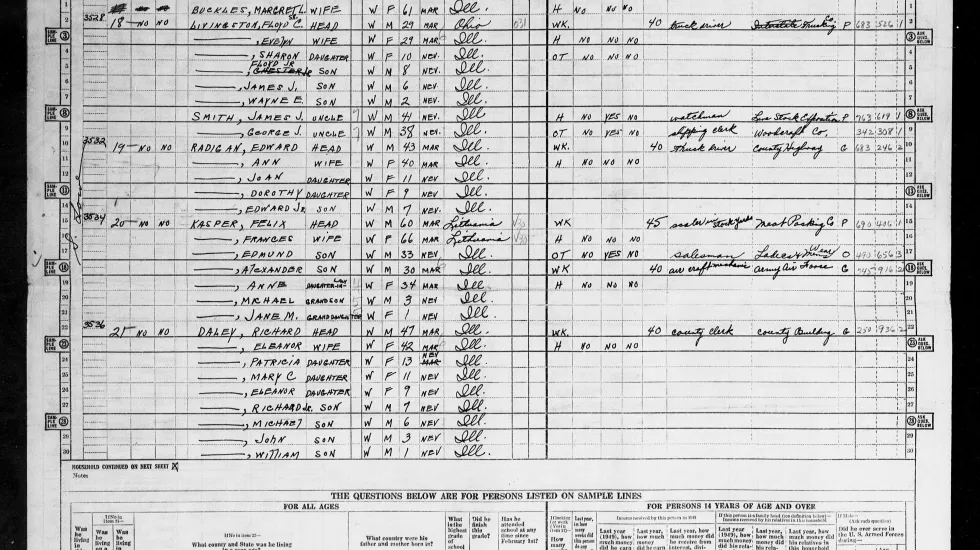
A treasure trove of population records collected during the 1950 Census were released to the public on Friday allowing a glimpse into households and family dynamics more than half a century ago.
The National Archives and Records Administration released the population data through a free platform that enables the most novice user the ability to search their family history.
The 1950 Census is the 17th decennial head count of the United States — a process that has taken place every 10 years since 1790. It determines the number of congressional seats each state gets and how billions in federal funds are distributed across the country.
Federal law requires the records remain a secret for 72 years before they can be released to the public. The last release of records - from the 1940 Census - came in 2012.
The release of the 1950 Census will help genealogists, historians and anyone interested in their own family ancestry. These records provide insight to household size, ancestry, education attainment, work, income and whether someone served in either of the World Wars.
There were 20 questions in total for households to complete, which is slightly less than the 1940 Census but significantly more than the nine questions asked in the 2020 Census.
“While the Decennial Census is constitutionally used to determine congressional apportionment to states, the completed forms can give us a unique peek into our nation’s past to the delight of historians, genealogists and to all of us — the public,” Robert Santos, director of the U.S. Census Bureau, said in a statement. “As for me, I’m looking to see the form submitted at the house where my abuelita, my grandmother, lived on Parsons Street in San Antonio with my parents, my aunts and my uncles.”
Arm-chair historians can get a look at a budding political dynasty in Chicago — the Daley family.
Richard J. Daley was just 47 when he filled out the 1950 Census, which includes his wife Eleanor and each of their seven children. At the time, he was serving as Cook County clerk but would go on to become mayor five years later. His son, former Mayor Richard M. Daley, was 7.

It’s easy to access the records because they have been digitized and are available online. The search feature on the website is user friendly but will still require some digging considering about 6.57 million pages are contained in the database.
The handwritten forms were read and transcribed using artificial intelligences, so some spellings may be incorrect. Users can submit corrections if they find misspellings. The site allows users to zoom in on a record and even download it or share the original image on social media platforms.
“It’s exciting that younger generations now have the opportunity to learn more about family members they know, like parents and grandparents,” Crista Cowan, corporate genealogist at Ancestry, said in a statement.
“The 1950 Census provides a fascinating look at an era in our collective history, but the magic happens when you discover a more complete picture of not only what your family member’s life was like at a moment in time, but also how it had changed over the decades.”







